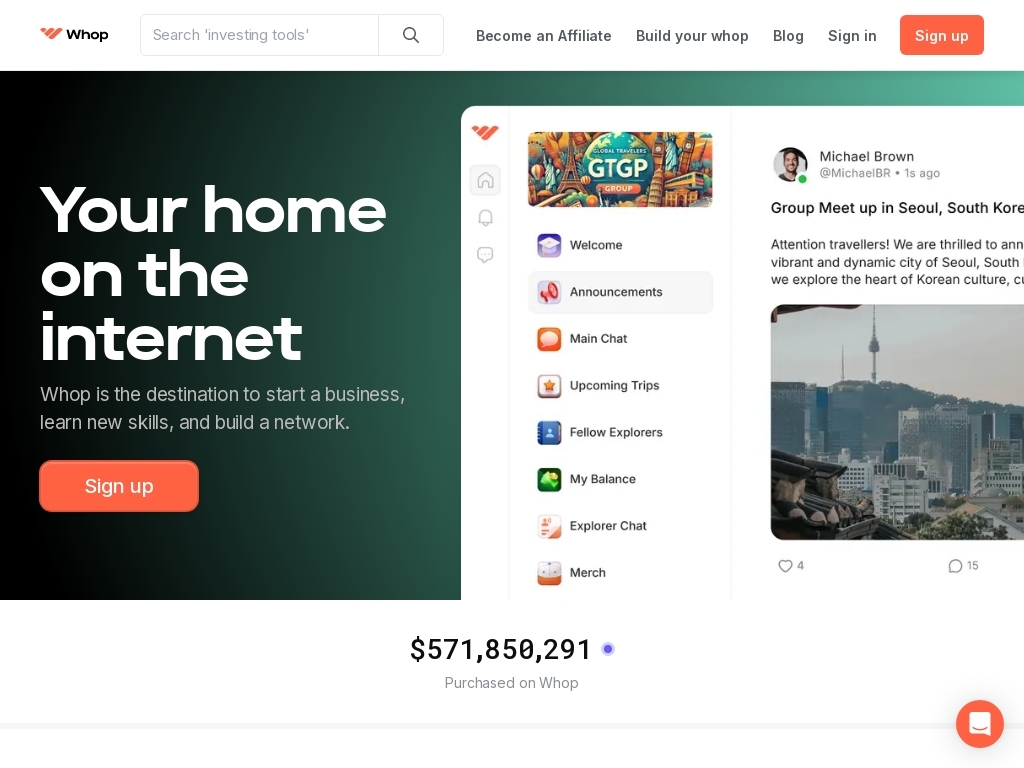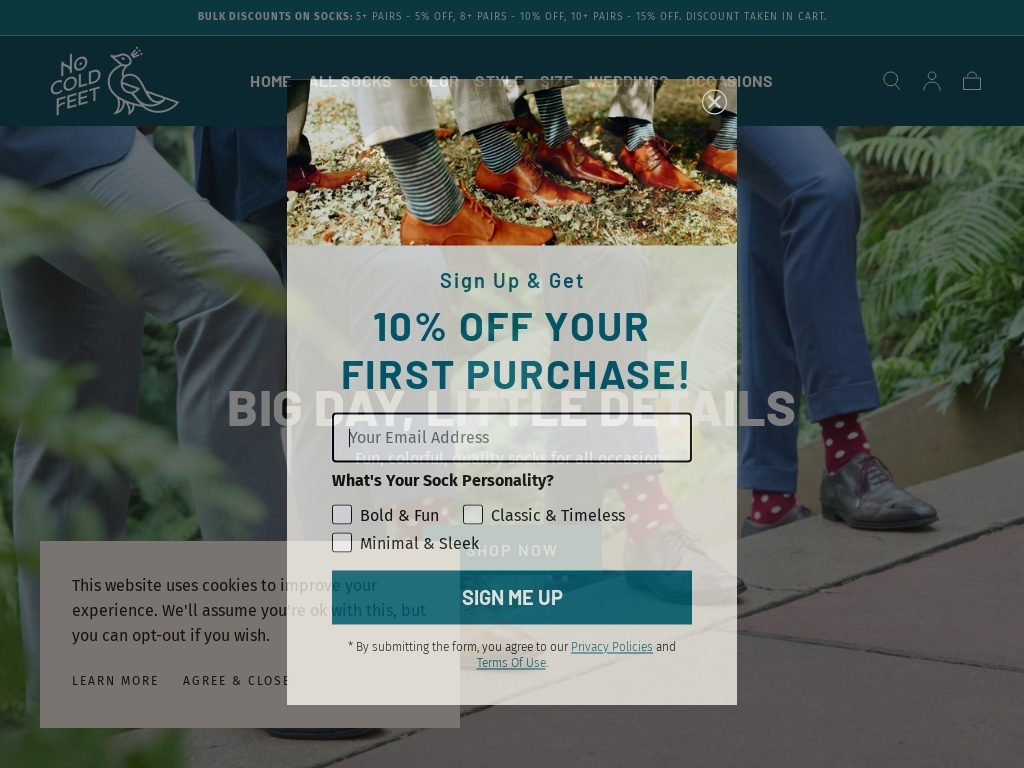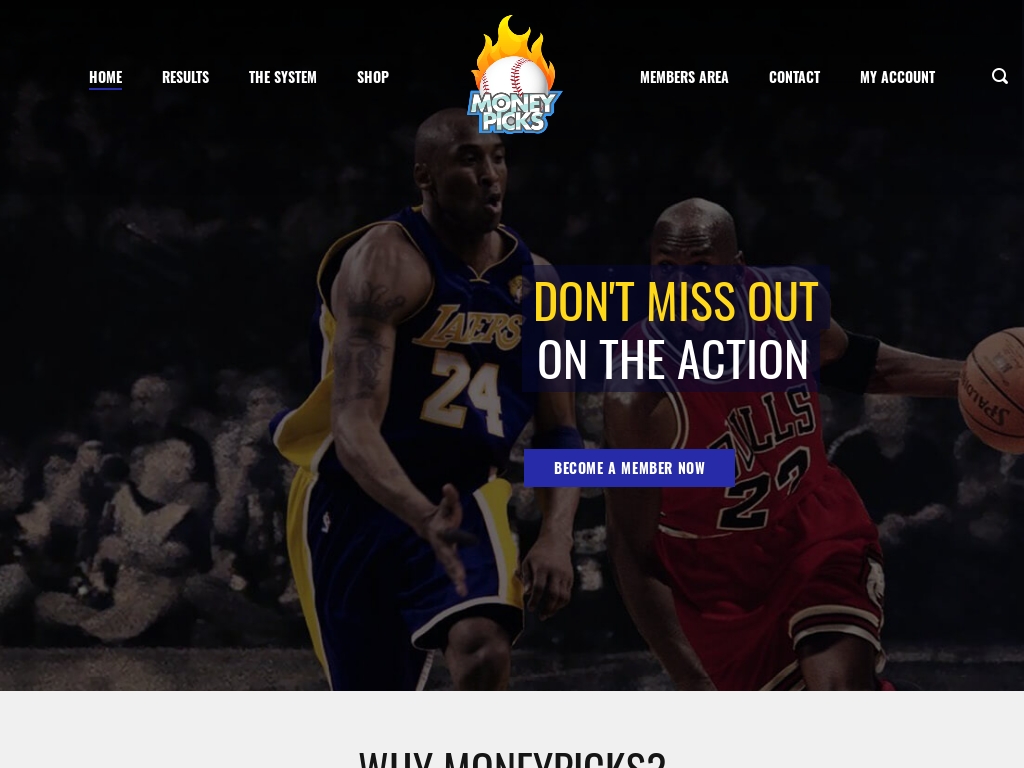
How Whop Founders Scaled a Marketplace to $354K/Month in Revenue
Who is Steven Schwartz?
Steven Schwartz, CEO and co-founder of Whop, is a tech entrepreneur from California who developed an interest in business at a young age. Partnering with Cameron Zoub, Schwartz initially built a sneaker bot for buying limited-edition shoes, eventually co-founding Whop to empower digital entrepreneurs. After studying at New York University and interning at Accenture, Schwartz focused on developing innovative digital marketplaces, blending his engineering expertise with entrepreneurial ventures.

Jack Sharkey, Steven Schwartz and Cameron Zoub; Whop co-founders
What problem does Whop solve?
Whop solves the problem of navigating the complex and fragmented digital marketplace for aspiring digital entrepreneurs by offering a secure and streamlined platform to create, sell, and engage with customers, helping users turn their passions into profitable online ventures.

Whop

How did Steven come up with the idea for Whop?
Steven Schwartz's journey toward founding Whop began with a personal frustration: wanting a coveted pair of sneakers at 13 and finding a savvy solution with sneaker bots. He partnered with Cameron Zoub, creating Sole Sniper to outsmart traditional buying methods, which was an early taste of entrepreneurship. This experience highlighted the power of innovation to solve personal problems and sparked his later ventures into digital marketplaces.
After numerous ventures, some successful and others not, Steven and his co-founders identified a recurring issue in software resale—a landscape riddled with scams and inefficiencies. They recognized the void for a trustworthy marketplace, driving them to create Whop as a safer, streamlined solution. Their digital backgrounds armed them with the skills and tenacity to iteratively refine Whop, turning initial insights into a robust platform.
Steven and his team took feedback seriously, continuously optimizing Whop based on user experiences and professional guidance, such as insights from mentors like Peter Thiel. Despite facing skepticism and several failures, their determination to build upon each lesson learned, while maintaining a focus on an authentic problem to solve, became the bedrock for Whop's evolution. This process underlined the importance of resilience and adaptability in entrepreneurship.
How did Steven Schwartz build the initial version of Whop?
Whop's co-founders, Steven Schwartz, Cameron Zoub, and Jack Sharkey, approached the development of their digital marketplace with a clear focus on solving a prevalent problem around secure software transactions. Initially, they delved into problematic forums on Discord, identifying major challenges like scam risks during software sales. The first version of Whop was developed to streamline these transactions, allowing users to sell digital products efficiently while minimizing fraudulent activities, using Discord's social features to facilitate sales. They built this initial system in under three months by strategically addressing the core issues of engagement and transaction security. This agile execution, typical of startup environments, was intense but fueled by their prior experiences in digital marketplaces and app development. Challenges faced included integrating robust payment systems and customer support mechanisms which they tackled incrementally, allowing for rapid iteration and refinement as adoption grew.
What were the initial startup costs for Whop?
- Series A Funding: Whop raised $17 million in a Series A funding round, with investors including Peter Thiel, James Harden, and The Chainsmokers.
What was the growth strategy for Whop and how did they scale?
Social Media and Influencer Partnerships
Whop has effectively used social media channels and partnerships with major influencers to grow its platform reach. By collaborating with popular influencers, they have managed to drive significant traffic to their site. Influencers who have a strong connection with their audience help in endorsing Whop, adding credibility and trust to the platform.
Why it worked: Social media and influencer partnerships are strong tools for reaching broader audiences and building brand awareness. Influencers already have established trust with their followers, making their endorsements more impactful. This approach not only attracts new users but also leverages the vast networks and social capital of the influencers.
Word of Mouth
Word of mouth has been a significant driver of Whop's growth. Users who have had a positive experience on the platform recommend it to their peers. This organic growth channel is powerful because it relies on genuine user satisfaction and experiences.
Why it worked: Positive word of mouth is a cost-effective way to increase brand awareness. When users have successful experiences, they naturally share them with their network, leading to new user acquisition without the need for expensive marketing campaigns. The authentic nature of word-of-mouth recommendations often results in higher conversion rates compared to traditional advertising.
SEO and Content Marketing
Whop optimized its website with smart SEO strategies and content marketing to attract users actively searching for digital business tools. By creating relevant and informative content, they enhanced their visibility on search engines and catered to potential users interested in digital entrepreneurship.
Why it worked: SEO and content marketing target users who are already interested in related niches, which means these users are likely looking for solutions that Whop offers. The informative content not only helps in educating potential customers but also positions Whop as a thought leader in the digital entrepreneurship space. This increases trust and attracts organic traffic over time.
What's the pricing strategy for Whop?
Whop charges a 3%-4.5% fee plus 40 cents per sale, or 30% for featured sellers, promoting a marketplace for digital entrepreneurs with transparent pricing.
What were the biggest lessons learned from building Whop?
- Solve Real Problems: Whop thrived by addressing genuine needs, such as creating a safe marketplace for digital products. Their focus on actual user requirements led to sustainable success.
- Embrace Failure and Iterate: The journey wasn't linear. Many ventures didn't succeed, but each failure offered lessons that shaped Whop's eventual triumph. Use setbacks as learning opportunities.
- Prioritize Team Dynamics: Having a passionate, young team with shared values in Brooklyn fueled Whop's growth. Foster an environment of collaboration and shared vision.
- Innovate and Adapt: Whop continually evolved based on user feedback, improving features like dispute resolution and engagement tools, ensuring they stayed relevant in a changing market.
- Leverage Mentorship: Guidance from experienced advisors like Peter Thiel and Justin Mateen was pivotal. Seek mentorship to gain insights and avoid common pitfalls in entrepreneurship.
Discover Similar Business Ideas Like Whop
|
|
Idea
|
Revenue
|
|---|---|---|
|
Matcha.com
|
Premium ceremonial-grade matcha supplier for tea aficionados.
|
$708K
monthly
|
|
No Cold Feet
|
Customizable socks and gifts for groomsmen.
|
$108K
monthly
|
|
Moneypicks
|
Sports betting analytics membership for winning picks.
|
$8K
monthly
|
|
vonu
|
Innovative multi-use lounger for infant comfort and relief.
|
$100K
monthly
|
|
WrumerSound
|
"Device transforming car speakers into engine simulators."
|
$35K
monthly
|
|
NOVO watch
|
Handmade watches crafted from reclaimed historical materials.
|
$20K
monthly
|
|
Pretty Arrow
|
Personal finance tools empowering young women to conquer debt.
|
$10.4K
monthly
|
More about Whop:
Who is the owner of Whop?
Steven Schwartz is the founder of Whop.
When did Steven Schwartz start Whop?
2021
What is Steven Schwartz's net worth?
Steven Schwartz's business makes an average of $354K/month.
How much money has Steven Schwartz made from Whop?
Steven Schwartz started the business in 2021, and currently makes an average of $4.25M/year.

Download the report and join our email newsletter packed with business ideas and money-making opportunities, backed by real-life case studies.

Download the report and join our email newsletter packed with business ideas and money-making opportunities, backed by real-life case studies.

Download the report and join our email newsletter packed with business ideas and money-making opportunities, backed by real-life case studies.

Download the report and join our email newsletter packed with business ideas and money-making opportunities, backed by real-life case studies.

Download the report and join our email newsletter packed with business ideas and money-making opportunities, backed by real-life case studies.

Download the report and join our email newsletter packed with business ideas and money-making opportunities, backed by real-life case studies.

Download the report and join our email newsletter packed with business ideas and money-making opportunities, backed by real-life case studies.

Download the report and join our email newsletter packed with business ideas and money-making opportunities, backed by real-life case studies.















